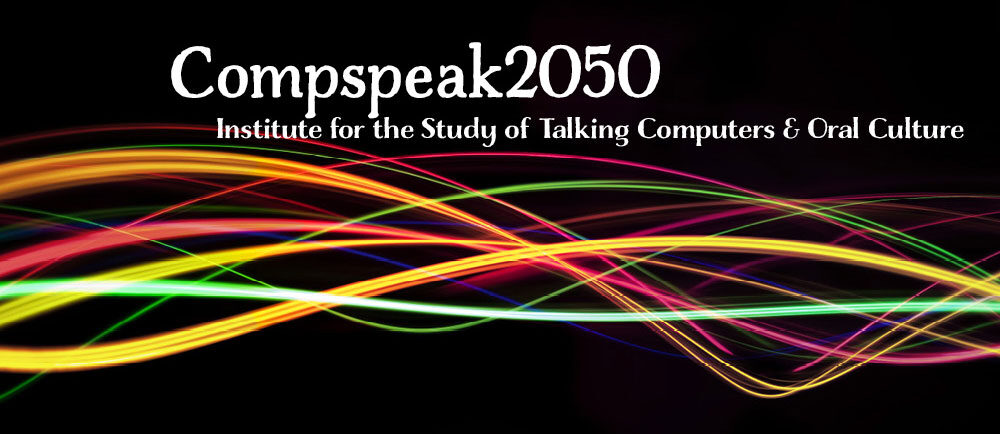 Vision Statement
Vision Statement
The prospect of escalating conflicts and tensions around the world, together with the ongoing search for global peace, demand that we create technologies which allow everyone to communicate with everyone else. Voice-in/voice-out (VIVO) talking computers, using online voice-recognition technology, will allow all people to access the world’s storehouse of information merely by speaking, listening, and viewing graphics. We live in a world in which 80% of the population is nonliterate or functionally so, thousands of different native languages block or deter easy communication amongst people, and millions suffer from disabilities that prevent them from reading and/or writing. However, using a VIVO, a person won’t need to know how to read or write text in order to store and retrieve information. VIVO’s instantaneous language translation function will enable that person, while speaking only in their own native language, to converse with all of humanity. And if they had a disability that barred them from accessing text, they could speak, listen, or sign via their VIVO. By lowering these historic barriers to global communication, VIVOs hold the potential for democratizing information flow worldwide–one key step in creating democratic nations that support human and civil rights, freedom, justice, and equality as the necessary bases for world peace. Without our being able to hear–literally–the voices of the world’s disenfranchised, world peace will remain an illusory goal. Over the next decades, as VIVOs enable more and more of those voices to be heard, and as written language/text shrinks as our technology of choice for accessing information, the electronically-developed countries will evolve into oral cultures. By mid-21st Century, written language/text–which is essentially an ancient technology for storing and retrieving information–will be a thing of the past, and by mid-22nd Century, all nations and communities, including those we build in space, will be informationally united in a worldwide, yet diverse, oral culture.
Mission Statement
The Institute’s mission is to study, learn, speak, consult, promote dialogue, and write about:
1. The social, cultural, and philosophical implications of talking computers and voice recognition technology–that is, the ways that talking computers will affect every area of human activity.
2. The replacement of writing, reading, and written language itself by talking computers and other speech-based and non-text visual technologies–a process that began in the 19th Century and will reach completion in the 21st Century.
3. The parallels that exist/will exist between today’s oral cultures around the world and the oral cultures that the United States and the other electronically-developed countries are becoming.
4. The ongoing school literacy crisis, its causes and its solution. The impact that talking computers will have on education in the 2lst Century.
5. The nature, history, uses, and effects of written language as a technology specifically developed to store and retrieve information under the specific conditions of the agricultural revolution 6,000 to 10,000 years ago.
6. The role that human evolution plays/will play in the development of information technology (including talking computers), and vice versa.
7. How to make sure that the human right of all people, nonliterate or literate, with disabilities or without, to access the stored information of our world via talking computers is realized in the 21st Century.
